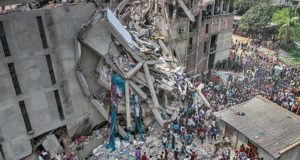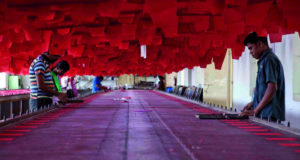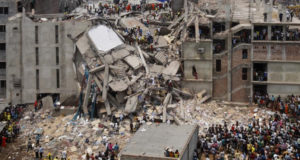Although safety is a higher priority five years on from the Rana Plaza disaster in Bangladesh that killed 1,135 garment workers, dangerous conditions persist in smaller factories, campaigners said.
Read More »Indian textiles industry is seeking steps to end backdoor entry of Chinese textiles
Amid a fast increasing import of garments made of Chinese fabrics from Bangladesh, the Indian textiles industry is seeking "tweaking of South Asian Free Trade Area (SAFTA) rules of origin" to make use of yarn and fabrics of Indian origin mandatory for exporting apparel to India, an official said on Tuesday.
Read More »The high cost of cheap clothes
On the morning of April 24, 2013, a poorly constructed eight-storey garment factory known as Rana Plaza collapsed in Dhaka, Bangladesh, killing more than 1,130 people in a crush of brittle concrete and rebar. It was the worst industrial disaster in the country’s history, but the toll didn’t end when the building fell. Many later died from injuries sustained in the collapse or were permanently physically disabled. Others developed PTSD or other mental health conditions from witnessing the event.
Read More »Industrial automation: a challenge for Bangladesh’s manufacturing future
Manufacturing will continue to be an integral part of securing a better economic future for Bangladesh. According to the World Bank, manufacturing contributed 28.6 per cent to the GDP (gross domestic product) in 2016, accounting for 13 per cent of the total employment.
Read More » CPD RMG Study Stitching a better future for Bangladesh
CPD RMG Study Stitching a better future for Bangladesh



